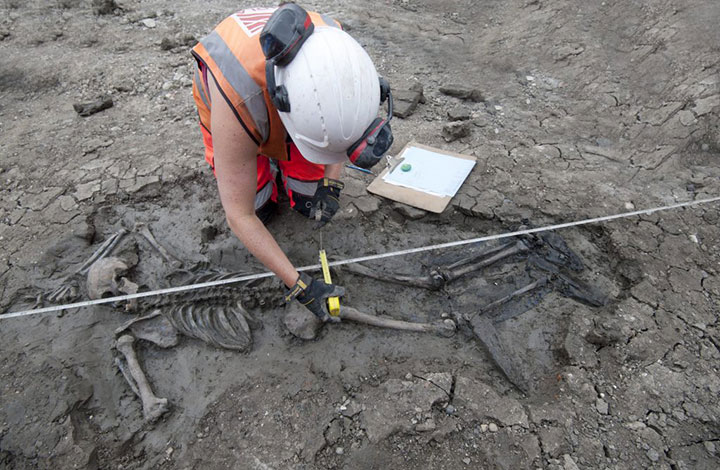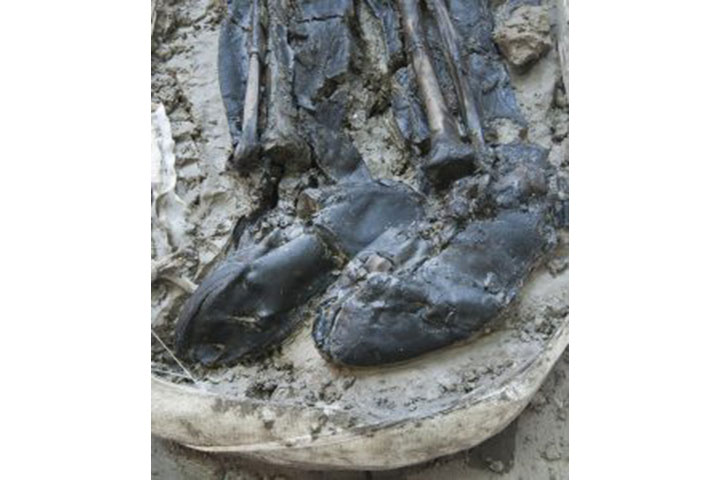British archaeologists have unearthed a “mysterious” skeleton found lying face down in the mud near the shore of the River Thames in London, still wearing thigh-high boots and believed to be from the 15th century.

A team of archaeologists was working on a site for London’s new “super sewer” in Bermondsey earlier this year when they found what is believed to be a 500-year-old male skeleton with a pair of leather boots still intact around his feet.
“By studying the boots, we’ve been able to gain a fascinating glimpse into the daily life of a man who lived as many as 500 years ago,” Beth Richardson of the Museum of London Archaeology (MOLA) said in a statement. “They have helped us to better understand how he may have made his living in hazardous and difficult conditions but also how he may have died.”
READ MORE: Girl, 8, pulls pre-Viking-era sword from Swedish lake, unclear if she’s the ‘true queen’ of Sweden

The museum believes the boots date back to the late 15th or early 16th century and are thought to be waders.
“Leather was expensive and often re-used at this time, and experts believe it is unlikely that someone would have been buried wearing such a highly prized item,” the museum noted.

Get daily National news
MOLA said based on its studying of the footwear, research suggests the man wasn’t buried deliberately due to his “unusual” position. The skeleton was found with “one arm above his head with the other bent back on itself to the side.”
READ MORE: World’s largest modern-day Viking ship arrives in Canada after 6-week transatlantic journey
“These clues could suggest that he fell or drowned and was covered quickly by the ground as it moved with the tide,” MOLA noted.
The museum’s osteologists believe the man was no older than 35 before he met his demise and possibly suffered from osteoarthritis.
“Possibly the biggest clues about his life are deep grooves found on his teeth,” MOLA noted. “They were caused by a repetitive action like passing rope between his teeth as a fisherman might, which may also suggest that he made his living from the river.”









Comments
Want to discuss? Please read our Commenting Policy first.